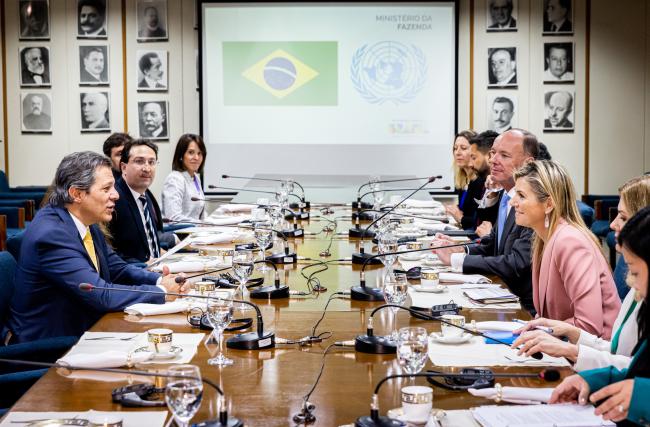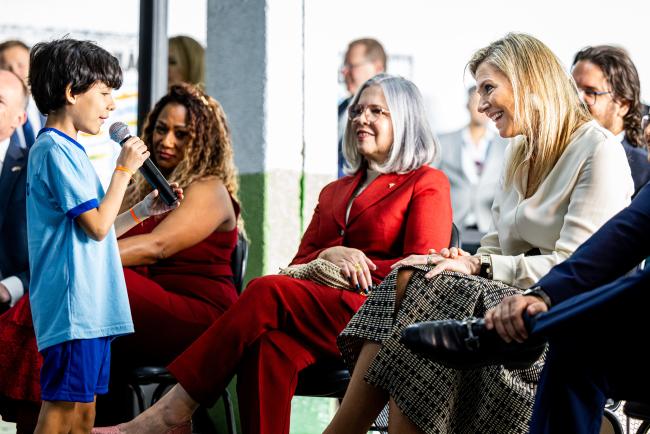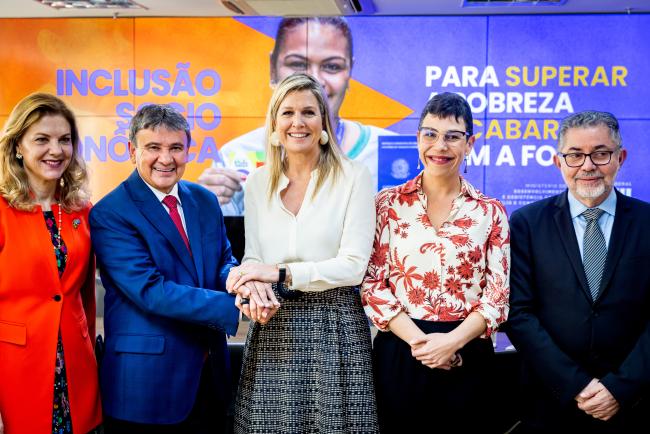Brazil has made great strides in financial inclusion over the last decade, where 84% of adults now have access to a formal financial account (Findex 2021)—representing a rise from 70% in 2017 and 56% in 2011.
Further, Brazil’s ongoing pro-competition approach to developing an inclusive digital finance ecosystem and infrastructure, such as the interoperable payments like Pix, has been key, along with an emerging open finance regime that can help private sector innovation thrive. These have been key enablers in reaching underserved groups.
In addition to including the remaining 27 million unbanked adults in the country, the next crucial step for Brazil could be leveraging financial access to enhance the financial health of Brazilians. Financial health is a pressing concern in Brazil, with the average score suggesting low levels of financial health and early signs of financial difficulties and stress, per the 2022 Brazilian Financial Health Index Survey (I-SFB). Furthermore, nearly 80% of surveyed Brazilian adults (Findex 2021) expressed concerns about having enough money for monthly expenses or coping with financial demands in old age.

In a concerted effort to identify and engage in discussions surrounding financial inclusion and financial health, H.M. Queen Máxima of the Netherlands, the United Nations Secretary-General's Special Advocate for Inclusive Finance for Development (UNSGSA), undertook a visit to Brazil on 5-7 June 2023. During her time in the country, she held meetings with key government officials, international development partners, and strategic stakeholders from the private sector.
This included bilateral dialogue with Minister of Finance Fernando Haddad, Banco Central do Brasil (BCB) President Roberto Campos Neto, Minister of Social Development, Assistance, Family and Fight Against Hunger Wellington Dias, and Caixa Econômica Federal (CEF) President Rita Serrano, among others.
Queen Máxima, in her efforts to gain firsthand insights into the experiences of businesses and clients in the financial services sector, conducted two field visits in São Paulo. These included meetings with innovative financial services providers (FSPs) such as Kovi and Dinie, where the UNSGSA engaged directly with the companies’ leadership, as well as their clients who are entrepreneurs and small business owners. The purpose of these meetings was to understand the impact and significance of these financial services on their operations.

Key Priorities
During her meetings, the following three key priorities were identified:
1. Prioritize Financial Health as a Policy Objective
The UNSGSA met with Minister Haddad to discuss how policymakers can explicitly recognize and promote financial health as a national objective and invest in measurement to inform policy design. For example, she highlighted the importance of promoting emergency savings, as well as designing social protection programs with resilience in mind. She also emphasized these points in a meeting with President Neto and other senior leadership at the central bank.
2. Leverage Financial Innovations to Improve Brazilians’ Financial Health
Throughout the visit, Queen Máxima stressed that FSPs can prioritize clients’ financial health as a core business strategy and use data as indicators to better assess their clients’ financial health. She noted during a roundtable with leading Brazilian FSPs on consumer financial health, hosted by Banco Santander Brasil, that one example is to be on the lookout for early warning signs and assist clients before financial challenges worsen. She consistently reiterated that there is a strong business case for the private sector to care for clients’ financial health.

3. Foster Competition and Innovation for a Responsible Digital Financial Ecosystem and Infrastructure that Benefits Everyone
The Special Advocate highlighted that fostering competition and innovation to promote a responsible digital financial infrastructure and ecosystem boosts the reach and quality of financial services, particularly for underserved segments. Across meetings, the UNSGSA noted that Brazil has consistently developed a series of regulations and policy initiatives that encouraged competition in the payments and financial services market. She flagged that it led to remarkable progress in financial inclusion, improving the range and quality of products, as well as the variety and number of FSPs.
Moving forward, she discussed with Brazilian leaders that it is also critical to strengthen financial consumer protection in this increasingly digital era and empower financial sector regulators with the authority, tools, and coordination mechanisms to effectively tackle the challenges. This is important considering the significant number of low-income customers entering Brazil's formal financial system and utilizing digital financial services for the first time, said the UNSGSA.
UNSGSA Partners
Partners from the UNSGSA’s Reference Group that supported technical work on the visit included the Better than Cash Alliance, the Bill & Melinda Gates Foundation (BMGF), the Consultative Group to Assist the Poor (CGAP), and the World Bank Group.
